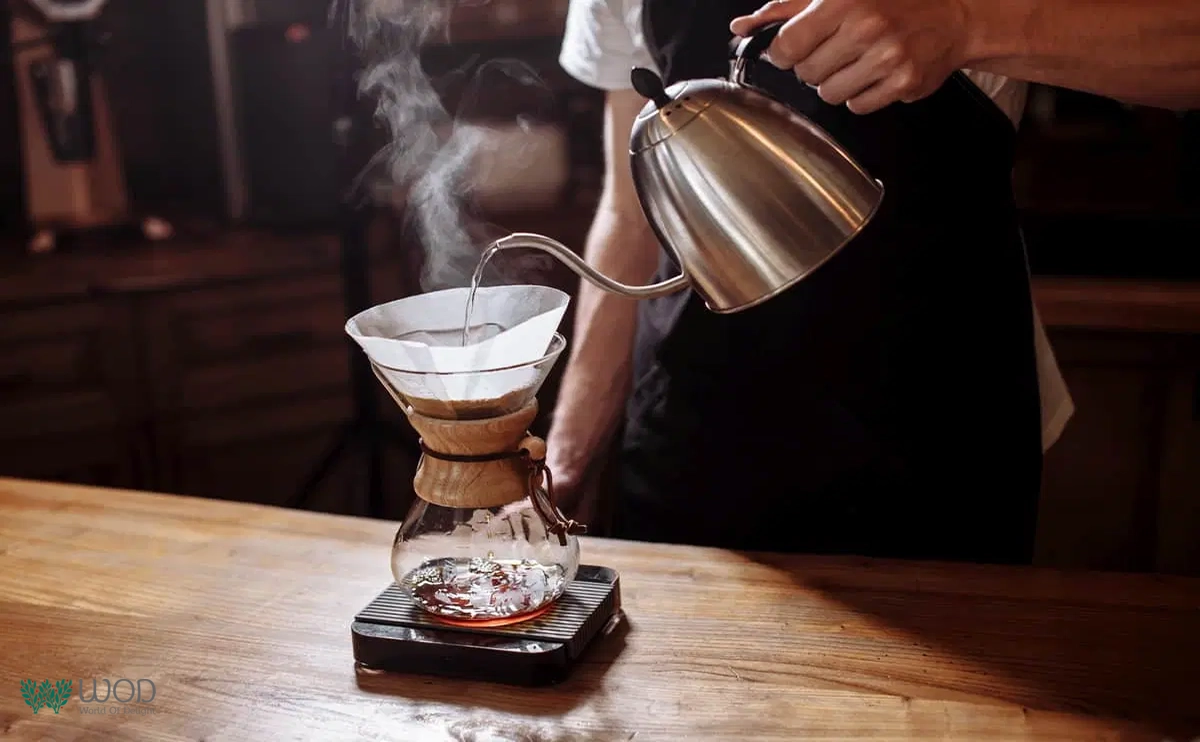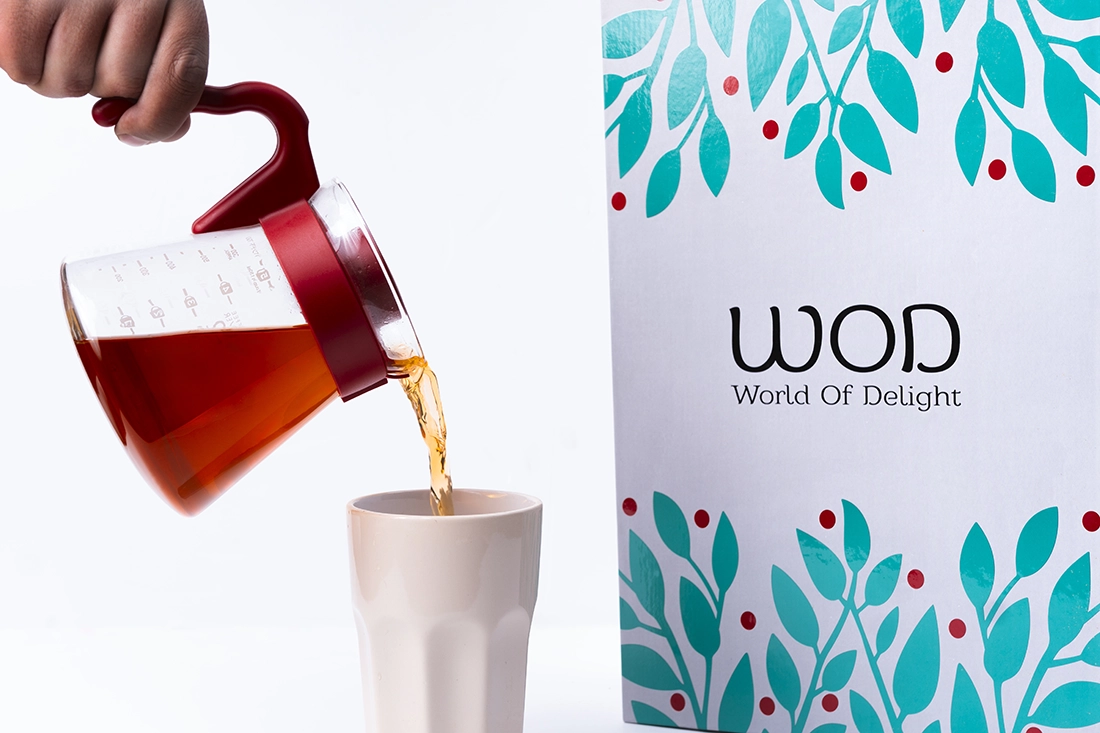How Water Quality Impacts the Taste of Specialty Coffee

When it comes to brewing specialty coffee, most people focus on bean quality, roast level, and brewing technique. However, one crucial factor often overlooked is the quality of the water used. Due to differences in water quality across regions and various treatment processes, the same coffee can taste completely different depending on where and how it is brewed. Water is not just a solvent; it actively extracts flavors and influences the final cup. Understanding the science behind coffee water quality can help elevate your brewing experience and bring out the best in your specialty coffee.
The Science Behind Coffee and Water Interaction
Coffee is composed of approximately 98% water, making water quality one of the most critical factors in determining specialty coffee taste. The mineral content, pH level, and purity of brewing water directly impact the solubility of coffee compounds. Hard water, rich in minerals like calcium and magnesium, can enhance certain flavors, whereas soft water with low mineral content may result in under-extracted, dull-tasting coffee. On the other hand, highly treated or distilled water lacks essential minerals, leading to flat and lifeless brews. Striking the right balance in water composition ensures that the coffee's natural flavors shine through.

Mineral Composition: Finding the Perfect Balance
The mineral content in brewing water significantly affects extraction efficiency and flavor perception. The Specialty Coffee Association (SCA) recommends specific guidelines for optimal brewing water:
- Calcium (Ca2+) & Magnesium (Mg2+): These minerals contribute to proper extraction by interacting with coffee solubles. Magnesium enhances perceived acidity, while calcium provides balance and structure.
- Bicarbonates (HCO3-): Bicarbonates act as a buffer, preventing excessive acidity or bitterness. Too much can neutralize desirable acidity, leading to a flat taste.
- Total Dissolved Solids (TDS): The ideal TDS level ranges between 75-250 ppm (parts per million), ensuring a well-balanced brew without overpowering flavors.
- PH Level: The optimal range is 6.5-7.5, as too acidic or alkaline water can distort the intended flavor profile.

The Impact of Water Hardness on Coffee Flavor
Water hardness refers to the concentration of dissolved minerals, particularly calcium and magnesium. It is classified into two types:
- Hard Water: High mineral content enhances mouthfeel but may over-extract bitter compounds, especially in light-roasted specialty coffee.
- Soft Water: Low mineral content results in under-extraction, producing weak or sour-tasting coffee. Soft water often lacks the necessary ions needed for proper extraction.
For a balanced cup, moderately hard water with a calcium-to-magnesium ratio of 2:1 is ideal. If water is too hard, it can lead to scale buildup in coffee equipment, negatively impacting long-term brewing consistency.
Filtration and Treatment Methods for Brewing Water
Due to regional differences in tap water quality, filtering and treating water is essential for maintaining specialty coffee taste. Common water treatment methods include:
- Carbon Filtration: Removes chlorine, which imparts unwanted chemical flavors.
- Reverse Osmosis (RO): Eliminates most impurities but requires remineralization to restore proper mineral balance.
- Distillation: Produces pure water but lacks necessary minerals, necessitating controlled remineralization.
- Ion Exchange: Softens water by replacing calcium and magnesium with sodium or potassium, though excessive softening can result in flat-tasting coffee.
Using the right filtration method ensures consistency in brewing and highlights the nuanced flavors of specialty coffee.

Bottled Water vs. Tap Water: Which One is Better?
Many coffee enthusiasts debate whether bottled water or filtered tap water is superior for brewing. The answer depends on the water source and its mineral composition:
- Bottled Water: Some brands, such as those with balanced mineral content, are excellent choices for brewing. However, avoid overly mineralized or distilled bottled water.
- Filtered Tap Water: A high-quality filtration system can remove impurities while preserving beneficial minerals, making it a cost-effective and environmentally friendly option.
The best approach is to test different water sources and measure their TDS and pH to determine which provides the best extraction for your coffee beans.
Experimenting with Water for Better Coffee
To fully grasp the impact of water on specialty coffee taste, coffee enthusiasts should take a scientific yet practical approach to testing and refining their brewing water.
Step 1: Compare Different Water Sources
Start by brewing the same coffee with various water types—tap water, filtered water, bottled mineral water, and distilled water. Observe how each affects the body, acidity, and clarity of the coffee. Tap water with high chlorine content may introduce undesirable flavors, while distilled water often leads to an unbalanced, flat-tasting brew due to the lack of essential minerals. On the other hand, well-balanced mineral water may enhance sweetness and clarity.
Step 2: Adjust Mineral Content for Optimal Extraction
If your water lacks the ideal mineral composition, consider adding mineral supplements specifically designed for coffee brewing, such as Third Wave Water or custom mineral blends. These products allow for fine-tuning of calcium, magnesium, and bicarbonate levels to achieve the ideal balance. Some coffee professionals even create their mineralized water using precise measurements of salts like magnesium sulfate and calcium chloride to highlight different attributes of coffee.
Step 3: Monitor pH and TDS Levels
Investing in a water testing kit or TDS (Total Dissolved Solids) meter can provide valuable insights into water quality. A pH level between 6.5 and 7.5 ensures optimal extraction, preventing excessive acidity or bitterness. TDS should ideally fall between 75-250 ppm to balance solubility and flavor extraction. By consistently measuring and adjusting these parameters, you can fine-tune your brewing water to match your preferred coffee profile.
Step 4: Experiment with Different Ratios and Blends
For those who enjoy full control over their coffee’s taste, blending different water sources can be an interesting experiment. Mixing soft and hard water in controlled ratios allows for a more customized approach, enabling you to balance acidity, body, and sweetness in your brew.
Through systematic testing and adjustments, coffee lovers can unlock the full potential of their specialty coffee beans. The right water can elevate even the most delicate flavor notes, revealing the true artistry behind each brew.

Conclusion: The Overlooked Key to Specialty Coffee Excellence
Water quality plays an indispensable role in shaping the flavor of specialty coffee. Whether through mineral balance, pH level, or filtration, the composition of brewing water significantly impacts extraction and taste. By selecting the right water and making necessary adjustments, coffee lovers can ensure that each cup reflects the true potential of their specialty beans.
At WOD Specialty Coffee, we understand the importance of every element in coffee brewing, including water quality. Our blog explores the science behind coffee, helping enthusiasts master every aspect of their brewing process. Whether you’re a home barista or a coffee professional, WOD Specialty Coffee provides insights into the finer details that make a difference in every sip.
